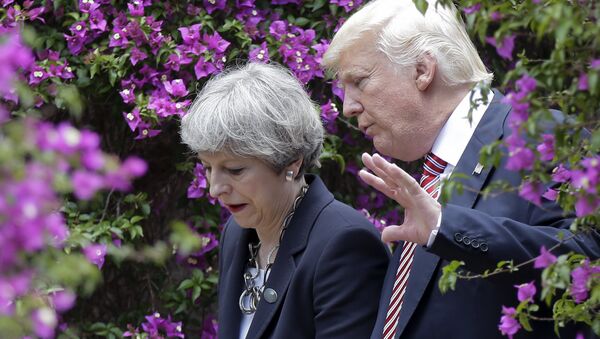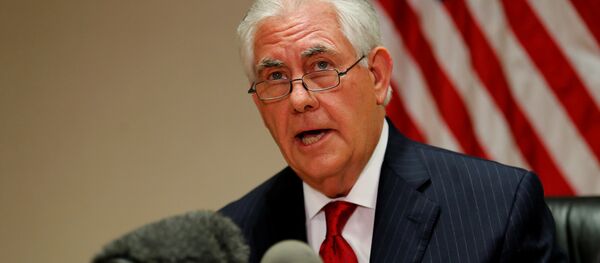"Our focus is on working with the US and international community on how we can increase pressure and find a peaceful solution to the ongoing threat North Korea poses to international security. We will continue to play a central role at the United Nations — supporting resolutions on sanctions that will limit North Korea's ability to pursue its nuclear weapons program," the spokesperson said.
However, Mrs. May is said to be preparing to break ranks with Mr. Trump on the issue of climate change, with the spokesperson adding that the embattled British premier would stress the country remained fully committed to the Paris Agreement, and there was no need for renegotiation in future as "it delivers."
Despite this suggestion, no official confirmation codifying UK opposition to amendments has been issued. Nonetheless, if one is in the offing, it would be in direct contravention of Trump's stated desire for a renegotiation of the treaty's terms, to make the agreement more favorable to the US. Furthermore, it would mark the first time May has spoken out on the issue — while other European leaders have made abundantly clear to the Republican president his denial of climate science is a problem, the Prime Minister has maintained a determined silence.
His June 1 announcement the US would withdraw from the Agreement was met with continent-wide consternation, with European Commission First Vice-President Frans Timmermans pledging the remaining G19 would continue the fight against climate change without US involvement. For her part, May remained silent.
Moreover, leaked documents obtained by Greenpeace's Energydesk in May show the UK tried to craft policies designed to improve energy efficiency — such as reducing greenhouse gas emissions and making goods cheaper to run for consumers — voluntary rather than mandatory. In essence, suggested targets, not legally-binding restrictions.
The UK also made representations to the EU arguing member states should be allowed to make no progress at all towards a 2030 target on renewable energy until the last moment.
Barry Gardiner, Shadow International Trade Secretary — whose brief includes climate change since May's scrapping of the dedicated ministerial post thereof — said at the time the leaks demonstrated Trump had a "mole" within the EU — that mole being the UK — charged with watering down commitments and making them voluntary instead of mandatory.
Green Party leader Caroline Lucas added the documents were "a strong indication" that the UK was in risk of becoming "an offshore pollution haven" where the environment is in the "firing line" of a "brutal" deregulation agenda.
The UK is lobbying to weaken the EU's post-Brexit climate targets https://t.co/RHCR8nNuPg pic.twitter.com/wjEOnFhcCA
— Energydesk (@Energydesk) June 24, 2017
In one of the leaked documents, the UK proposed watering down an EU plan to improve energy efficiency by 30 percent by 2030, reducing the target figure to 27 percent and making it "indicative" rather than "binding."
Another submission showed the UK also wanted to remove a requirement for a "linear" trajectory towards a 2030 target for renewable energy after 2021, which would allow countries to spend years doing nothing, then suddenly catch up just before 2030.
"Technologies, particularly newer and less established technologies, do not roll out at a linear pace. We do not consider that linear progress to the target should be expected or determined at the EU and, rather, that it should be for member states to determine based on their plans," the leaked document states.




